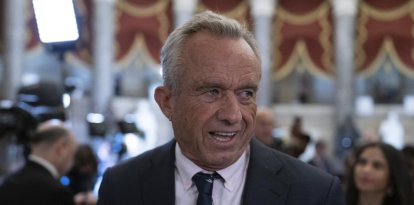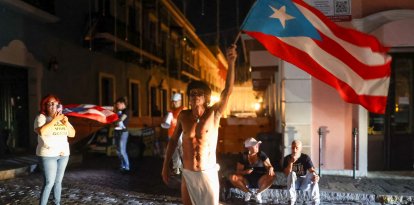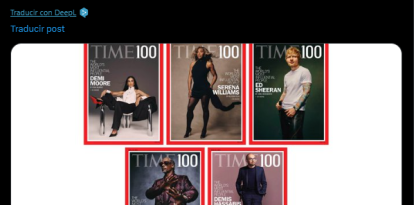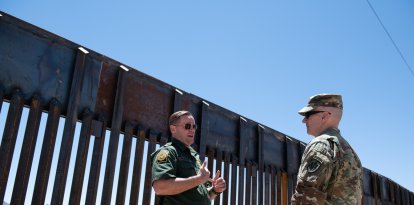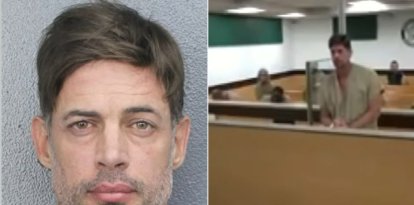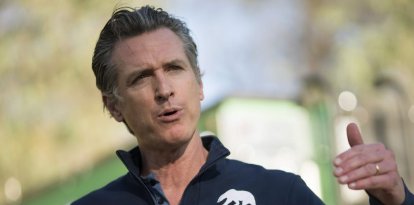Essay in the New York Times: Prosecutor Bragg's case against Trump is a “historic mistake”
"This case is still an embarrassment of prosecutorial ethics and apparent selective prosecution," wrote law professor Jed Handelsman Shugerman.
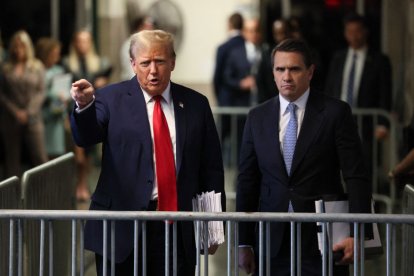
El profesor de derecho Jed Handelsman Shugerman cuestionó al fiscal de Manhattan Alvin Bragg. (AFP)
In a powerful essay published in The New York Times on Tuesday, Jed Handelsman Shugerman, a law professor at Boston University, criticized Manhattan Prosecutor Alvin Bragg for bringing a case against former President Donald Trump that he considered “an embarrassment” and a “historic mistake.”
According to Shugerman’s explanation, Prosecutor Bragg accused Trump of falsifying business records, a crime that is considered minor, but to elevate it to a criminal case, the Manhattan Prosecutor’s Office strung together a weak case to accuse the former president of possible violations of federal electoral law and state tax fraud for falsifying the record of an alleged payment to adult film actress Stormy Daniels, whose silence was allegedly bought during the 2016 presidential campaign.
According to Shugerman, Bragg’s case looks, at first glance, weak and flimsy, mainly because the prosecutor’s office failed in its approach to indicting the former president.
For the law professor, the prosecutor’s office should have based its case not on “the crime” but on “the cover-up.”
“The reason has to do with those allegedly falsified business records: Most of them were entered in early 2017, generally before Mr. Trump filed his Federal Election Commission report that summer. Mr. Trump may have foreseen an investigation into his campaign, leading to its financial records,” Shugerman wrote. “Mr. Trump may have falsely recorded these internal records before the F.E.C. filing as consciously part of the same fraud: to create a consistent paper trail and to hide intent to violate federal election laws or defraud the F.E.C.”
However, the professor said that “none of the Manhattan D.A.’s filings or today’s opening statement even hint at this approach,” which, he detailed, would also face its own legal challenges.
Instead, Shugerman wrote that the Manhattan prosecutor adopted a weak theory of “election interference,” which was described by Judge Juan Merchan as an allegation of falsification of business records “to conceal an agreement with others to unlawfully influence the 2016 election.”
In that sense, the professor states: “As a reality check, it is legal for a candidate to pay for a nondisclosure agreement.”
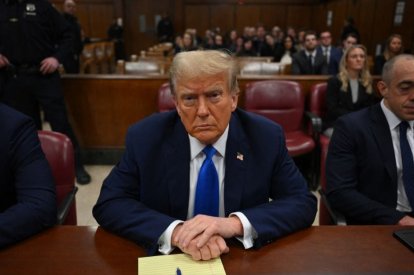
Who is David Pecker, the Prosecutor's first witness against Trump, and why is his trial testimony so important?
The academic later described three problems for Bragg and his prosecutors when trying to try a federal crime in state court.
The first is, according to Shugerman, “overreach” because there is no previous case of a “state prosecutor relying on the Federal Election Campaign Act either as a direct crime or a predicate crime.”
The second problem is that prosecutors did not cite court precedents related to the criminal statute in question when Trump’s defense argued “that the New York statute requires that the predicate (underlying) crime must also be a New York crime, not a crime in another jurisdiction.”
Finally, the law professor wrote that no New York precedent has allowed for an interpretation of defrauding the general public, as prosecutors argue in their controversial case.
"Legal experts have noted that such a broad 'election interference' theory is unprecedented, and a conviction based on it may not survive a state appeal."
Strengthening his point that Bragg’s accusation is a historical error, the professor noted that it is logical and reasonable to ask whether the case is more about Manhattan politics than New York law, warning of the danger of increasing procedural abuses in the United States.
Finally, in his conclusion, Shugerman wrote that both parties have the right to present their arguments in court, noting that it is a more than complicated case for the Prosecutor’s Office.
“This case is still an embarrassment of prosecutorial ethics and apparent selective prosecution. Nevertheless, each side should have its day in court,” Shugerman wrote. “If convicted, Mr. Trump can fight many other days — and perhaps win — in appellate courts. But if Monday’s opening is a preview of exaggerated allegations, imprecise legal theories and persistently unaddressed problems, the prosecutors might not win a conviction at all.”
RECOMMENDATION
